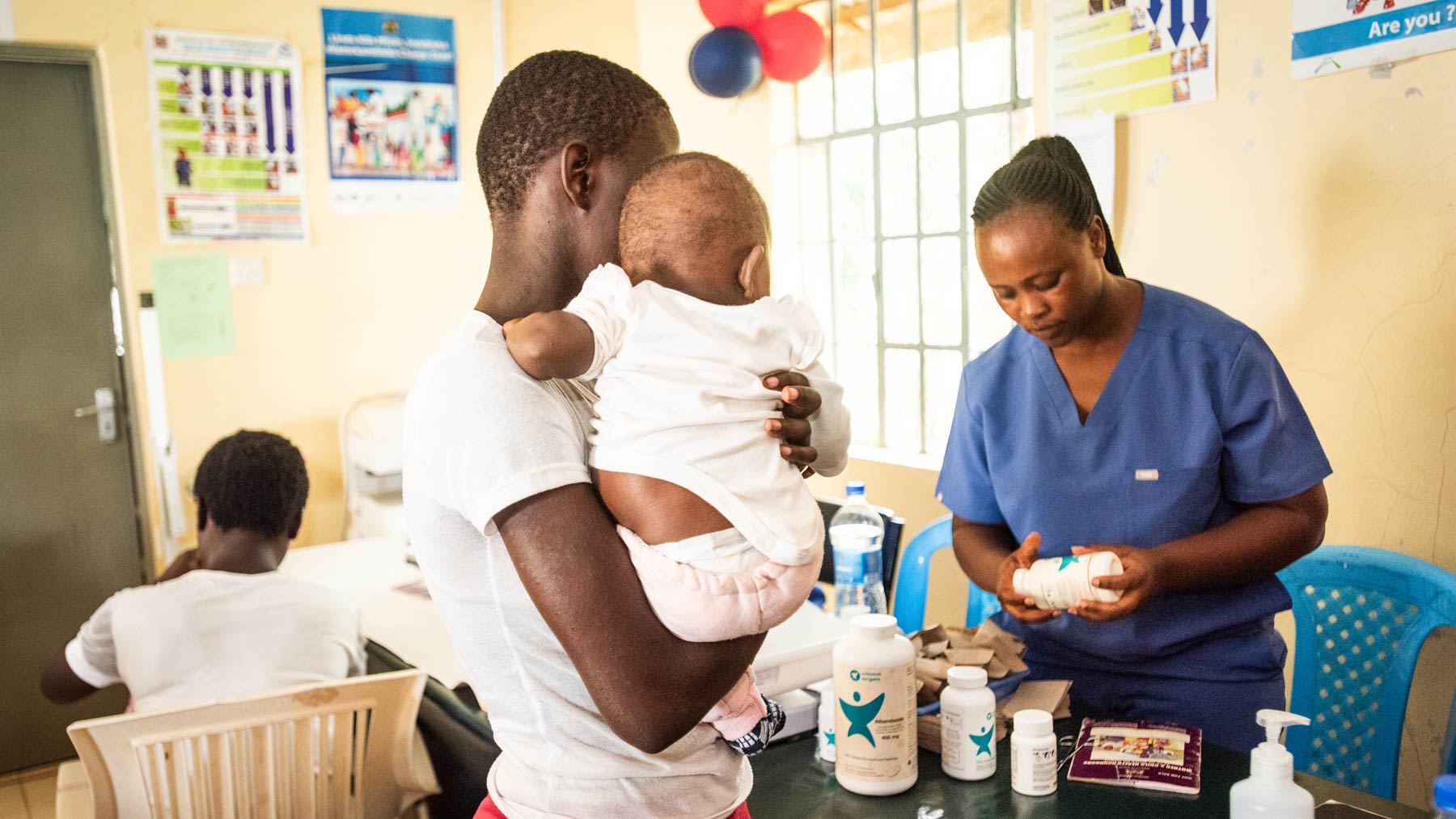Building Programs for Sustainable Impact
By Lucy Kanya
Senior Technical Director for Africa Programs, Vitamin Angels
© Vitamin Angels – Mia Collis

My entire career I’ve worked to improve health systems — by directly working in them, or by collecting relevant evidence and tools towards this end. When health systems deliver and scale evidence-based nutrition interventions for women and children, the impact on their health and wellness can be incredible. That’s why I am encouraged to see strong momentum happening now across the African continent for maternal nutrition and high-impact interventions, including multiple micronutrient supplements (MMS).
Today, more than ten African countries are at various stages of exploring the use and implementation of MMS to improve women’s nutrition during pregnancy – and that list is rapidly growing. UNICEF’s recent Improving Maternal Nutrition Acceleration Plan has provided yet another spark to the movement. This plan aims to fast-track the delivery of a package of essential antenatal care services (including MMS) to reach 16 million pregnant women across 16 priority countries—including seven in Africa— by the end of 2025. Vitamin Angels’ Africa-based team is proud to work alongside a growing number of regional partners, including governments, civil society leaders, and implementing organizations across these key geographies to support the introduction and scale-up of MMS as part of this plan.
I am hopeful that collectively, we can harness this momentum to drive meaningful progress for even more women and children across Africa. To that end, there are several key considerations and lessons learned that we must keep at the forefront to make our vision a reality:
- Supporting and collaborating with national governments: Public sector investment and alignment are critical for long-term, sustainable nutrition programs. Given maternal and child health is a cross-cutting issue, it is critical to break down siloes and move toward an integrated approach – within ministries and governments and across sectors. This requires close collaboration with government stakeholders and other partners to evaluate the needs of the populations they serve and design and implement programs to address them.
Vitamin Angels, for example, has supported collaboration and policy dialogues across government ministries and key stakeholder groups to support the introduction of MMS in Nigeria. As a result of these efforts and the hard work of many stakeholders, the Nigerian government has added MMS to its national Essential Medicines List – a major milestone that will embed MMS into the health system with national resources to support its introduction.
Vitamin Angels was selected to join the Federal Ministry of Health’s MMS Taskforce, a working group created to support national implementation research and scale-up across several of Nigeria’s states. Together with partners, Vitamin Angels is working to define the roadmap for MMS introduction and scale up in Nigeria. Additionally, we have completed an evaluation of our MMS implementation experience across six states. Findings from this study will inform Nigeria’s strategy for effective and sustainable scale-up of MMS and other nutrition interventions across the entire country. - Working with World Vision, we are supporting the Zambian government to introduce MMS within the antenatal care platform. Adopting human centered designs, findings from implementation research have informed the development of contextually relevant strategies to enhance uptake and adherence of MMS. The MMS Technical Advisory Group (TAG), comprised of stakeholders supporting nutrition programming in Zambia, provides guidance and ensures local ownership of the interventions.
Collaboration and quality evidence are key strengths of our ongoing efforts in Africa. The following points outline the successful tenets of our model:
- Building local capacity: A core tenet of our programming is to provide support to existing infrastructure and health systems and build long-term capacity at the community level. To increase the quality and potential for impact of existing programs, we offer technical assistance—from educational materials that ensure excellence in the delivery of nutrition solutions, to support with record-keeping and reporting, and supply chain logistics.
We’ve seen success in the Democratic Republic of the Congo, where we collaborate closely with the government and key stakeholders to provide resources and skills training courses to service providers at the community level to bring interventions directly to the mothers and babies that need them most. Additionally, in Kenya, Vitamin Angels builds partner capacity by providing the tools needed to counsel mothers and provide breastfeeding support, as well as vitamin A supplementation and deworming (VAS+D) for children. - Tailoring implementation to the local context: Implementation efforts will be more sustainable if they meet the needs of local communities. Conducting implementation research is critical to understanding the local context and tailoring delivery of MMS and other high-impact nutrition interventions.
In Uganda, Vitamin Angels and partners are conducting implementation research – working with the Ministry of Health to help determine protocols. The Ministry of Health is in the process of using the recommendations provided by these learnings to inform the introduction of MMS and future capacity building within the country. Learnings from ongoing implementation research can help all stakeholder groups advance progress for women and children, while bringing their unique strengths and perspectives to the table.
For the past 18 years in my career, I have seen first-hand the impact that we can have when stakeholders band together in a coordinated effort to improve access to healthcare services and commodities for underserved individuals. Vitamin Angels is proud to support this effort and we invite other groups – from civil society, government, academia, and beyond – to join in the dialogue and positively impact the lives of millions of children, women, and entire communities globally.
